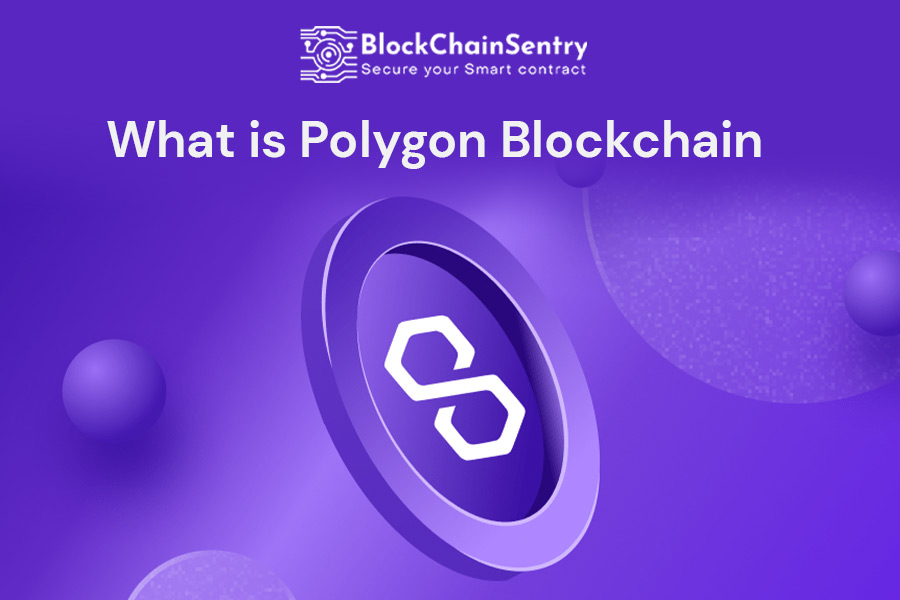What Is Polygon Blockchain?

Polygon, a layer-2 Ethereum platform, is increasingly becoming popular due to its high speed, low gas fees, and higher transactional outputs. Currently, Polygon hosts around 19,000+ DApp with 1.6 billion transactions per second for its 142 million users, having a 5 billion dollar asset base on the network. Layer 2 platforms came into existence as the activities on Ethereum Layer 1 increased, and it maxed out and suffered congestion. At the same time, the gas fees also raised high per transaction. Layer 2 Ethereum platforms are developed to tackle these shortcomings of the layer 1 Ethereum platform. Layer 2 blockchains are more scalable with inherited security assurance of the Ethereum platform.
A wide variety of economic activities, including NFT marketplaces, gaming, and the expanding DeFi ecosystem, can be found on the Ethereum blockchain. Ethereum Blockchain network is the most preferred one due to its compatibility with smart contracts, which can be used to create various decentralized applications (DApps). However, as these applications gain popularity, many new transactions are started and added to the Ethereum blockchain. Because of this, transaction costs, commonly referred to as "gas," increase, making it difficult for developers to entirely rely on this system.
A "Layer 2" scaling solution (or "sidechain") called Polygon has evolved to give users faster transactions and lower expenses. Polygon blockchain is an open-source technology that generates a distributed network that is accessible by anyone. Polygon blockchain is the first blockchain platform to allow the development of decentralized applications (dApps) on its platform. Polygon aims to build a new decentralized world that is open for everyone to use.
Matic To Polygon
The first cryptocurrency billionaires in India, Jayanti Kanani, Sandeep Nailwal, and Anurag Arjun, formed the India-based company Polygon in October 2017 under Matic Network. As stated in the protocol's first white paper, the three original co-founders created Polygon to address the problems caused by Ethereum's high gas costs and crowded network.
The three founders, Kanani serving as interim CEO, and Mihailo Bjelic, who joined the business shortly after it changed its name to Polygon, became the fourth co-founder, making up the decentralized, diverse team that runs Polygon. Additionally, MakerDAO, Chainlink, and Decentraland are partners of Polygon. Mark Cuban, the multibillionaire owner of the NBA team Dallas Mavericks, is one of its investors.
How Does Polygon Work?
Polygon uses the proof-of-stake (PoS) consensus, which uses a network of validators off the blockchain and then finalizes the transactions on Ethereum's main chain afterward. This can relieve the main blockchain of a large amount of its burden, which reduces network congestion, speeds up transaction processing, and lowers gas costs.
The Polygon network offers two chains: secured chains, which strengthen their security by utilizing a network of expert validators, and standalone chains, which are autonomous blockchains on the Matic PoS chain and compatible with Ethereum.
Polygon's Complete Suite Of Ethereum-Scaling Solutions
For Ethereum, Polygon offers various scaling architectures, including the Matic PoS Chain and Plasma Chain, which are operational from implementation. The network is implementing additional scaling infrastructure to help get Ethereum ready for widespread use.
Polygon PoS
By using sidechains for transaction processing, Polygon PoS is a system that provides better transaction speed and cost. PoS also uses a decentralized network of Proof-of-Stake (PoS) validators and dependable Plasma bridge technology to guarantee asset security.
Polygon Hermez
Hermez zk-rollup, a layer two addition to Ethereum, addresses the scalability issue by combining several transactions with bulk transfer processing. The rolling transfers completed on the Ethereum blockchain are verified for legitimacy and accuracy using "zero-knowledge proof" (ZK) technology, which is presented and publicly recorded. The effectiveness and throughput of the network are increased by only storing the proof and compressed data of a batch of transfers.
Polygon Edge
One can create their own blockchain network with customizable features with polygon edge. It gives your network Ethereum compatibility and is governed by modular architecture principles.
Polygon Nightfall
An Optimistic Roll-up called Polygon Nightfall is created to make private ERC20, ERC721, and ERC1155 token transfers less expensive. It employs zero-knowledge proof for privacy and an optimistic roll-up to lower transaction expenses.
Scaling Solution In Beta
Polygon Avail
The goal of Avail is to encourage a radical shift in blockchain systems. Avail provides modular chain architecture, allowing different execution contexts to use it for data availability and ordering. Whether a standalone chain or an off-chain scaling solution, the execution layer has no bearing on Avail. Applications hosted on these execution tiers benefit from Avail's complete security.
Polygon Miden
The layer two scaling solution for Ethereum is called Polygon Miden. To "roll-up" thousands of layer two transactions into a single Ethereum transaction, Miden uses zero-knowledge technology (zk-STARKs), which boosts throughput and lowers transaction costs.
Polygon Zero
A layer two scaling solution for Ethereum is Polygon Zero. It creates ZK proofs faster than any other technology.
Final Thoughts
Several sidechain initiatives push their features live to compete with Polygon for users' attention. At this point, Polygon's goal is to make Ethereum's sidechain as effective and scalable as possible. Although the Polygon team has stated they are not rushing to make substantial changes, they are methodically preparing their strategies—and onboarding experienced personnel who might offer the protocol a more significant value.
Regardless of how quick and scalable the system is, any system is still prone to vulnerabilities. Now, you can manage the vulnerabilities of the polygon blockchain DApp using BlockChainSentry's VMS. Contact BlockChainSentry to know more…